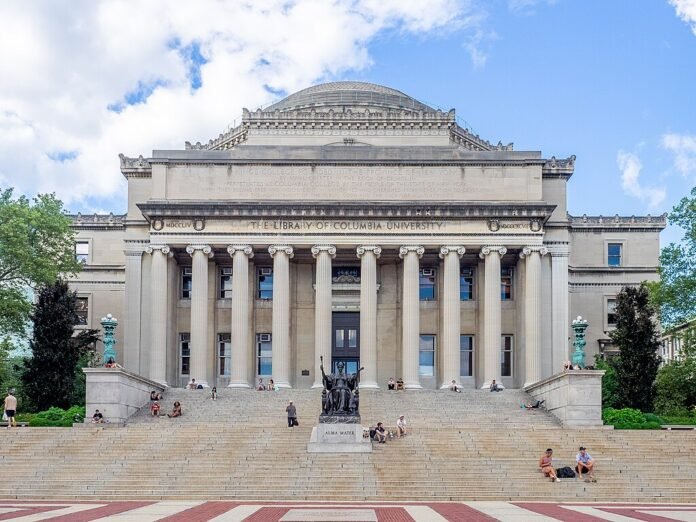University enforces strict protest bans, expands police powers, and revamps curriculum under pressure
Columbia University has caved to mounting pressure from the Trump administration, rolling out sweeping changes to its campus policies in a desperate bid to regain $400 million in frozen federal funding. The move comes after months of tension over student protests linked to the Israel-Hamas war, with the White House accusing the institution of failing to curb antisemitism.
In response, the university has unveiled a dramatic overhaul—clamping down on demonstrations, tightening disciplinary measures, and launching a controversial review of its Middle East studies curriculum. Critics say Columbia is surrendering to government coercion, while supporters argue it’s taking necessary action to restore order.
At the heart of Columbia’s new policy is an aggressive approach to student activism. The university has banned face coverings at demonstrations, citing security concerns, and empowered police to demand student IDs on the spot. Protests inside academic buildings—or even just outside them—are now strictly forbidden.
Embed from Getty ImagesIn an unprecedented move, Columbia is also hiring 36 new campus police officers, specially trained to suppress demonstrations. If necessary, these officers will work alongside the NYPD to remove or arrest protesters, a chilling signal to activists who have rocked the campus over the past year.
The administration insists these measures will prevent academic disruptions, but student groups see it as a direct assault on free speech. Many fear Columbia is being forced into submission by a White House intent on silencing dissent.
Columbia isn’t stopping at policing demonstrations—it’s also overhauling its disciplinary system to punish those who challenge its authority. A new judicial board, overseen by the provost, will now handle protest-related infractions, with the university president making final appeal decisions.
Officials point to last year’s student takeover of Hamilton Hall, a flashpoint in the pro-Palestinian protest movement. More than 110 people were arrested after barricading themselves inside, demanding the university cut ties with Israel. In response, Columbia expelled or suspended several participants and revoked some degrees. The university has vowed to continue disciplining others involved.
Trump’s crackdown isn’t just limited to campus policy. In a highly controversial move, the administration directed immigration authorities to arrest Mahmoud Khalil, a Columbia graduate and outspoken Palestinian activist, accusing him of having ties to Hamas. Though Khalil has not been charged with any crime, his detention has sent shockwaves through the student body, raising fears that activists could be targeted under Trump’s executive orders.
Perhaps the most controversial part of Columbia’s concessions is its decision to review its Middle East studies curriculum—a move widely seen as a response to White House pressure. The university will appoint a senior vice provost to oversee the changes, promising to promote “intellectual diversity” in the department.
Columbia has also pledged to maintain “institutional neutrality” on political issues, a shift that critics say is designed to appease Trump’s base. Additionally, the university will re-evaluate its admissions policies after a reported decline in Jewish and Black student enrollments.
In a statement, Columbia’s interim president, Dr Katrina Armstrong, defended the changes, saying they address “legitimate concerns” about antisemitism on campus. However, free speech advocates see the funding freeze as a thinly veiled attempt to force universities into political submission.
The New York Civil Liberties Union has condemned the Trump administration’s actions as unconstitutional, calling it an effort to force universities into “censoring student speech and advocacy that isn’t MAGA-approved.” The funding freeze, they argue, is a blunt tool to silence criticism of Israel and punish pro-Palestinian activists.
As Columbia fights to reclaim its lost federal funding, the wider implications loom large. Is this the start of a broader government assault on academic freedom? And how many other universities will be forced to make similar concessions?
For now, one thing is clear: Columbia has drawn a line in the sand—and for many, it’s on the wrong side.
